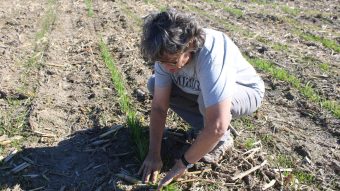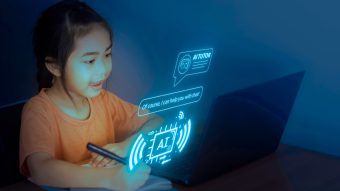Oct. 22, 2021
Even before COVID-19 had them speaking up in online classrooms or projecting their voices from behind masks, teachers were at high risk of vocal fatigue. This condition can cause persistent hoarseness, throat pain and permanent damage to the vocal cords. Currently, diagnosing vocal fatigue requires an in-person consultation. But someday, a wearable device or smart app could detect vocal fatigue early and help sufferers prevent further problems.
Before that happens, though, a machine has to learn how to recognize the difference between a healthy voice and a fatigued voice. That’s where Gui DeSouza comes in. DeSouza, an associate professor of electrical engineering and computer science, along with a collaborator from Germany, have spent years training a computer to detect vocal issues by providing the system with hundreds of samples from student teachers and control groups.
“Student teachers are affected by vocal fatigue a lot more than other professionals,” DeSouza said. “We are addressing the diagnostic side because early detection can warn a person to change their habits or take corrective action.”
In addition to everyday scenarios, the group is also looking at MRI data to see if brain activities — such as reactions to stressors — have any correlation with what is happening in the voice. In the future, researchers could use their findings to commercialize smarter detection devices.




